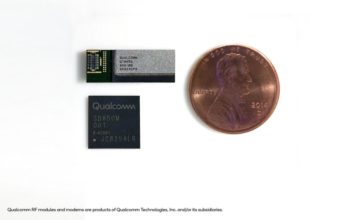With 5G poised to become the next big development in the world of wireless telecommunications, it’s vital that local governments work with the industry in order to make it easy for carriers to provide the best service possible to the customers across the country. While some areas have found difficulties between the two, it seems that other states are more than happy to work with wireless carriers.
Arizona Governor Doug Ducey knows that connecting the state he serves with the rest of the world is a vital component to consider in a future that’s becoming predominantly more and more digital. That’s why he has formally signed House Bill 2365 – a bill aimed at streamlining the deployment of 5G wireless communications technology throughout the state. With this step, Arizona actually became the first state in the nation to take such efforts, helping ensure consistent updates and improvement of wireless capability.
Arizona House Bill 2365 allows for wireless carriers to work with less regulations and fees. The bill ensures that, among other assurances, that a state authority may not prohibit, regulate, or charge for the collocation of small wireless facilities across the state. In short, the bill will keep state officials from overcharging or hindering the work that professionals in the telecom world are doing to help bring stronger coverage to the residents of Arizona.
In a statement from the Governor’s office, Ducey was more than happy to describe the potential benefits and ramifications of the bill, stating that, “Arizona’s economy is growing quickly. And, as a result, the demand for mobile data is growing, too. We need to make sure our state’s infrastructure can meet that demand. That means expanding existing wireless networks—which isn’t a question of ‘if,’ but ‘when.’ I was proud to sign House Bill 2365… The legislation, by making it easier to add capacity to existing wireless networks and, thus, improve our infrastructure, will go a long way in solidifying our reputation as a state where new and exciting tech companies can set up shop and flourish. In the 21st century, entrepreneurs shouldn’t have to jump through a patchwork of regulatory hurdles or navigate a maze of permits and fees in order to offer Arizonans access to mobile data. That’s what the legislation ensures.”
5G wireless is not readily available to the general public at the moment, as the carriers have yet to finish defining 5G standards, but it seems as if every major telecom company in the world is preparing for the huge step forward that 5G promises to be for the industry, and are rapidly working to develop and determine those standards as society becomes ever more data hungry. And by working with companies to ensure that they have an easier time installing systems, 5G may come to Arizona easier than it does to other parts of the country.
Major carriers such as Verizon, Sprint, and AT&T have been actively testing and planning their respective first 5G rollouts for 2018, and the increase in wireless capacity 5G promises can not be understated; it is expected that 5G service will be able to reach speeds up to 500 MBPS – fast enough to download a 100GB file in a matter of minutes. Compared to the current average American internet speed of 6.5 MBPS, 5G will revolutionize how many of us browse, learn, and communicate in both our personal and professional lives.




